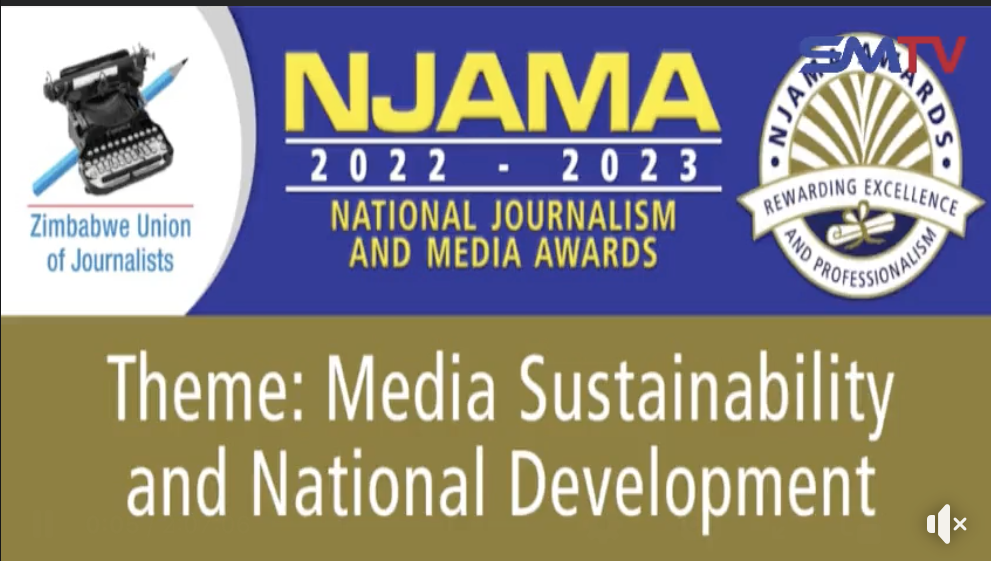The Zimbabwe Union of Journalists (ZUJ) has urged the Ministry of Information, Publicity, and Broadcasting Services to expedite the formation of the National Employment Council (NEC), which will be tasked with devising better salaries for journalists.
ZUJ argues that journalists, who play an essential role in informing citizens, are currently paid “dehumanising” wages that cannot fully meet their needs.
ZUJ president George Maponga claimed the poor wages earned by journalists drove them to engage in unethical acts as a means of survival while speaking at the annual National Journalism and Media Awards (NJAMA) ceremony officiated by Information Minister Jenfan Muswere on Thursday evening.
In his address, Maponga first decried the physical and emotional abuse, which journalists are subjected to by authorities, then observed that another major difficulty in the media sector was remuneration for journalists.
“Minister we invite you and the ministry to dialogue and discourse with us towards creating an environment that allows journalists to thrive. We have noted with concern and make condemnation of violations of journalists as they execute their work. These violations range from physical and emotional sources, barring journalists from select media organisations from covering events, forced deletion of material captured by journalists and being targeted for their media house that one works for,” Maponga said.
“Another big element in the room, honourable Minister is poor remuneration. Your journalists are paid dehumanising salaries and wages which has led to some opting for unethical means to survive.”
The ZUJ president said it was “a fact” that some journalists were accepting brown envelopes violating the profession’s ethical considerations of taking bribes to influence the outcome of certain stories.
“Our prayer, the honourable minister said, is with the speed establishment, the establishment of a National Environment Council to come up with salary schemes and standards that will bind the industry and retain dignity to journalists,” Maponga said.
In calling for better salaries, Maponga noted that the media sector is a difficult sector to be viable in.
“It is not a secret most publications ebbed due to Covid-19 effects. This affected business and even consumption patterns leading to low copy circulation, principally for newspapers. If we want to go on, the government must help us with Covid-relief assistance for the industry,” said the ZUJ president, mentioning that interventions needed were waivers on the importation of key raw materials and equipment.
“Bringing viability to meet the industry is a key provision for the industry’s capacity to fully and effectively tell Zimbabwe Zimbabwe’s story.”
The ZUJ President also said the Broadcasting Services Act (BSA) needs to be amended to allow foreign investment in the media.
“This will make sure business is liquid through financial injection by foreign partners,” Maponga said.
According to Maponga, journalists should satisfy elements and tenets of good journalism such as accuracy, factuality, fairness, balance and credibility, which is why ZUJ also calls for the speedy crafting of the Media Professionals Bill which is meant to professionalise the sector.
Another serious challenge highlighted by the ZUJ president was sexual harassment in the newsrooms.
“This requires deliberate action and more punitive measures if you are to end it. There is a need for a standardised harassment policy,” Maponga said.
The award ceremony was attended by members of the diplomatic community, representatives of various developmental partner organisations, corporate partners and sponsors.
The NJAMA awards had 29 categories with a total of 309 entries from 83 participants consisting of 25 females and 48 males.
Lulu Brenda Harris from CITE walked away with two awards – she won the Gender and Social Inclusion Award for articles highlighting challenges faced by the vulnerable/key populations and was a runner-up under the Environmental Journalist Award for an investigative story on the pollution of the Deka River in Hwange caused by coal mining.

